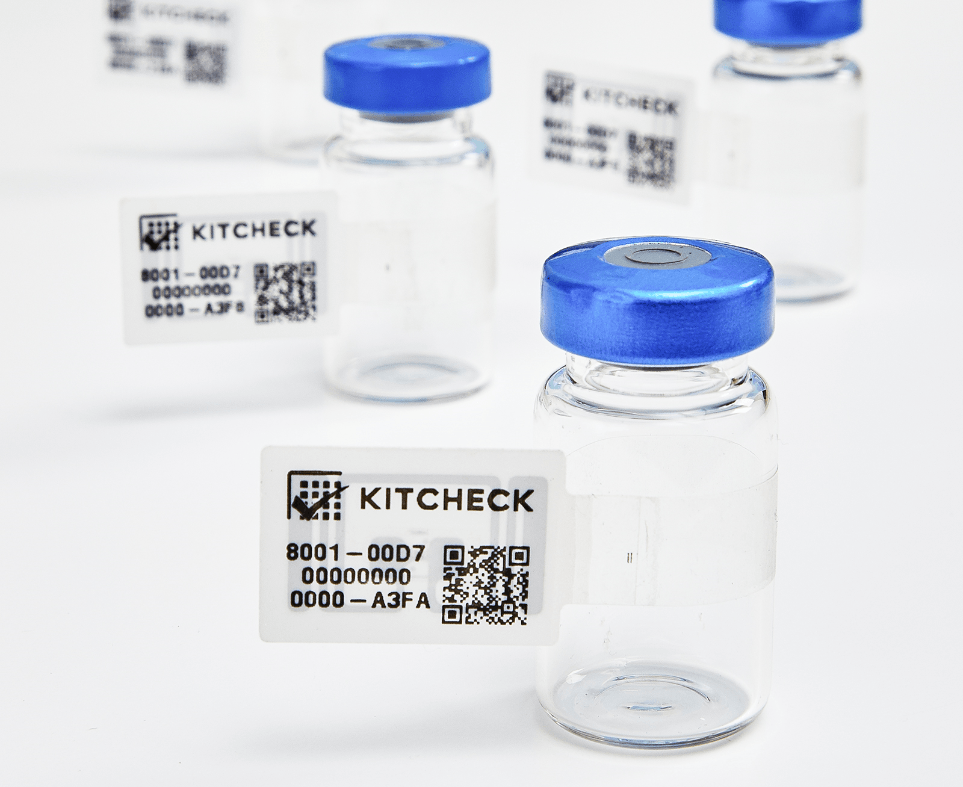
Bluesight is excited to announce compatibility and interoperability with the new GS1 SGTIN+ RFID Standards.
The GS1 Tag Data Standard 2.0
In February 2024, GS1 released an updated Tag Data Standard (v 2.1) which ratified the expansions to SGTIN+ tag encoding.
Specifically, the SGTIN+ format now 1) allows for 96-bit and 128-bit tags, 2) allows for NDC and serial numbers written to tag memory, and 3) accommodates both numeric and alphanumeric serial numbers in 96- and 128-bit silicon. This means that tags can now use multiple serial number types while still keeping the remaining data in the cloud.
Put simply, GS1 SGTIN+ now allows for the use of high-performance, low-memory tags. By minimizing the amount of information stored on the tag and offloading Lot, Expiry, and variable data to the cloud, Bluesight, with our technological partners, has developed a highly-performant tag optimized for the high-density environment of hospitals. Moreover, leveraging the cloud increases the amount of data that can be tied to a given item, including location (history), beyond-use dates, and more.
Implications for Bluesight Partners and the Bluesight Registry
Bluesight supports low-memory GS1 SGTIN encodings: SGTIN-96 and SGTIN+ (96-bit or 128-bit), as outlined in GS1 TDS 2.0, certifying that these tags are compatible with both Bluesight’s KitCheck Registry and KitCheck technology so long as the tags meet the ARC Spec S Quality & Performance metrics for RFID-in-pharma.
“The recent guidance from GS1 on the use of a partial cloud registry for RFID is a promising step in the right direction, and we continue to support multiple serialization schemes, including GS1 numbering systems,” shared Kevin MacDonald, CEO & Co-Founder of Bluesight. The Bluesight Registry will continue to support existing tag encoding methods so that tagging partners have many options to choose from to support their specific organization.
Pharmaceutical manufacturers that opt to use the Bluesight Registry store data in the cloud via the KitCheck registry, including but not limited to:
- Drug Information
- Manufacturer data
- NDC, Lot number, Expiration date, Serial number
- Variable Data
- Beyond-use dating
- Recall information
- Live Tracking
- Location
- Production, delivery, and consumption
Bluesight RFID Tagging Partners Now Have Multiple Encoding Options
A primary benefits of utilizing these low memory RFID tags are:
- No encoding on your packaging line – minimize fallout and increase uptime. All tags are fully pre-encoded and 100% readable by the time it gets to the manufacturing facility, meaning that pharmaceutical manufacturers do not need to replace critical components within their packaging line to start production with RFID.
- You can take advantage of the smallest and highest performance tags on the market for pharmaceutical products. These tag designs are small enough to fit on <1mL units and sensitive enough to work well on 100mL+ units, meaning that all your items can utilize a single tag design – no extra cost or re-qualifying new tags for each product.
- Increased patient safety by having critical data always up-to-date and universally available. Variable data such as beyond-use dates and recall information can be shared and accessed immediately without the risks of physically re-writing tag data.
The Bluesight-developed RAIN CIN / ISO UnitVisID encoding stores only tag header plus a unique serial number for the tagged item while the remainder of the tag information is stored in the cloud, including the NDC, Lot, Expiry, and so on. This minimizes the chance for misidentification of an item in the event of a tag encoding error.
In the GS1 SGTIN-96 and GS1 SGTIN+ (96-bit / 128-bit), a GS1 header, the item’s NDC, and serial number are all encoded into the tag, while the remainder of the information (including Lot, Expiry, etc.) is stored in the Registry. Users of these tag encodings enjoy the benefits of low-memory tags and cloud-based technology while maintaining mirrored ontological data between the tag and the item’s barcode without bogging down the RFID tag technology.

| RAIN / ISO CIN
UnitVisID / Bluesight |
GS1
SGTIN-96 |
GS1
SGTIN+ |
|
| Tag memory | 96 bits | 96 bits | 96 bits or 128 bits |
| On-tag information | Serial Number | NDC
Serial Number (Numeric) |
NDC
Serial Number (Numeric or Alphanumeric) |
| Fully pre-encoded | Yes | Yes | Yes |
“At Bluesight, we are dedicated to going above and beyond to ensure that all supported items meet the rigorous quality and performance standards required by UnitVisID, regardless of the numbering scheme,” MacDonald comments. “By continually pushing the boundaries of what is possible, we can improve patient outcomes and elevate the entire industry.”